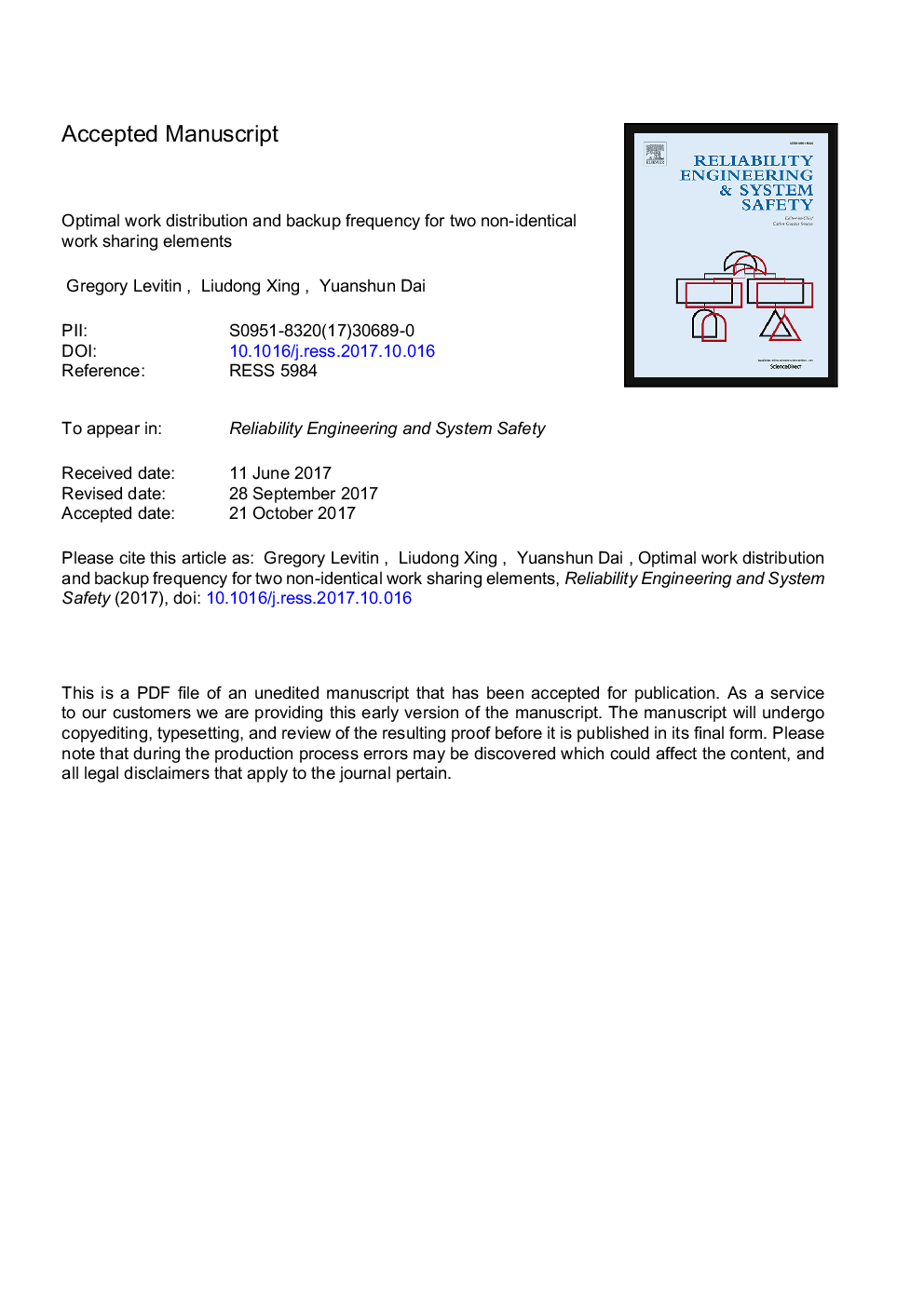| Article ID | Journal | Published Year | Pages | File Type |
|---|---|---|---|---|
| 7195311 | Reliability Engineering & System Safety | 2018 | 25 Pages |
Abstract
Motivated by abundant real-world applications where system elements process different work portions in parallel to accomplish a specified mission task, this paper models and optimizes two-element work-sharing systems. When one of the two elements fails, the remaining element takes over the work of the failed element upon completing its own part. Incremental backups are used to reduce the amount of work that should be redone in the case of failures. System elements can be characterized by different processing speeds, different time-to-failure distributions, and different numbers of backup actions. Mission success probability and expected mission completion time are first derived. Based on the proposed evaluation procedure, unconstrained and constrained optimization problems are formulated and solved, which find optimal work distribution and backup frequencies of the two elements maximizing mission success probability. Influence of element reliability, processing speed, deceleration factor as well as data backup and retrieval complexity on the optimal solutions is further investigated through examples. Results of this work can facilitate the optimal decision on work distribution and backup policies of heterogeneous work-sharing systems.
Related Topics
Physical Sciences and Engineering
Engineering
Mechanical Engineering
Authors
Gregory Levitin, Liudong Xing, Yuanshun Dai,
